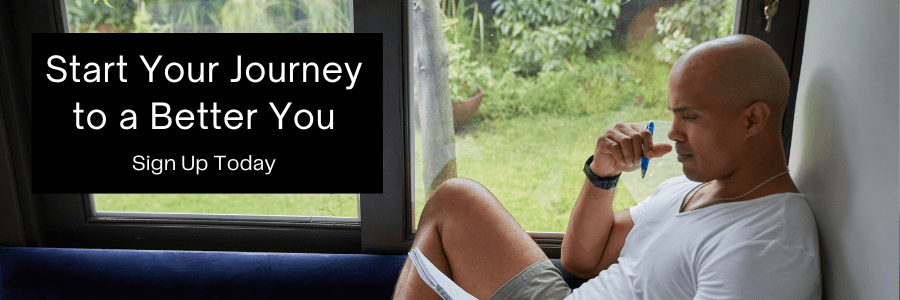Transforming Lives with Self-Reflection
Self-reflection is a powerful practice that has the potential to transform your life in profound ways.
Self-reflection is like looking in a mirror, but instead of seeing your face, you see your thoughts, feelings, and experiences. It’s a practice that goes beyond simply thinking about what happened during your day.
It involves diving deep into your mind, understanding why you feel a certain way, and figuring out how you can improve yourself.
In this article, we’ll explore how self-reflection can truly transform your life, leading to personal growth, better relationships, and a greater sense of purpose.
Understanding the Basics of Transformation Through Self-Reflection
Before diving into how self-reflection can transform your life, it’s essential to grasp what transformation means.
Transformation isn’t just about change; it’s about significant, deep-rooted changes that alter how you view yourself and the world. It’s like evolving from one version of yourself into a better, wiser, and more fulfilled version.
Self-reflection plays a crucial role in this process because it allows you to identify the areas of your life that need change. Without reflecting on your actions, beliefs, and emotions, you might stay stuck in the same patterns, unaware of the potential for growth.
The Power of Awareness
Self-reflection starts with awareness. Awareness is the foundation of any transformation because you can’t change what you don’t notice. When you begin to reflect on your thoughts and behaviors, you become more aware of your habits, both good and bad.
For example, let’s say you have a habit of procrastinating. Without self-reflection, you might continue to delay tasks, feeling stressed and overwhelmed.
However, by reflecting on why you procrastinate—whether it’s due to fear of failure, lack of motivation, or something else—you can start addressing the root cause and work on overcoming it.
Awareness also helps you recognize your strengths. By understanding what you’re good at, you can build on these strengths, boosting your confidence and guiding you toward opportunities that align with your abilities.
Building Emotional Intelligence
One of the most significant transformations that self-reflection brings is the improvement of emotional intelligence. Emotional intelligence is the ability to recognize, understand, and manage your own emotions, as well as the emotions of others.
Through self-reflection, you can gain insights into your emotional responses. For example, if you find yourself frequently getting angry in certain situations, reflecting on those moments can help you understand the triggers behind your anger. You might discover that your anger is rooted in deeper issues, such as feeling disrespected or unheard.
Once you understand your emotions better, you can start managing them more effectively. This doesn’t mean suppressing your feelings but rather acknowledging them and choosing how to respond.
This emotional control can lead to healthier relationships because you’ll be less likely to react impulsively and more likely to communicate openly and thoughtfully.
Gaining Clarity on Your Life’s Purpose
Self-reflection can also help you discover or reaffirm your life’s purpose. Many people go through life without a clear sense of direction, simply going through the motions without truly understanding what drives them. This can lead to feelings of emptiness or dissatisfaction.
By regularly reflecting on your values, passions, and goals, you can gain clarity on what matters most to you. For instance, you might realize that helping others brings you immense joy and fulfillment, leading you to pursue a career or hobby centered around service.
Alternatively, you might discover that your current path isn’t aligned with your true desires, prompting you to make necessary changes.
Having a clear sense of purpose gives your life meaning and direction. It motivates you to set goals and take actions that align with your core values, leading to a more fulfilling and satisfying life.
Overcoming Limiting Beliefs and Self-Doubt
We all have limiting beliefs—those nagging thoughts that tell us we’re not good enough, smart enough, or capable enough. These beliefs can hold us back from reaching our full potential, keeping us stuck in a cycle of self-doubt and fear.
Self-reflection is a powerful tool for identifying and challenging these limiting beliefs. When you take the time to reflect on your thoughts, you can start to question whether they’re really true.
For example, if you believe you’re not capable of achieving a certain goal, ask yourself why you think that. Is it based on past experiences, fear of failure, or something someone else told you?
By examining these beliefs, you can start to see them for what they are—mental barriers rather than absolute truths. This realization allows you to replace limiting beliefs with more empowering ones, boosting your confidence and encouraging you to take bold steps toward your goals.
Enhancing Decision-Making Skills
Another way self-reflection transforms your life is by improving your decision-making skills. When faced with important decisions, it’s easy to get overwhelmed or act impulsively. However, by reflecting on your options, values, and past experiences, you can make more informed and thoughtful choices.
Self-reflection allows you to weigh the pros and cons of each option, consider how your decision aligns with your values, and anticipate the potential outcomes. This process not only helps you make better decisions but also reduces the likelihood of regret or second-guessing later on.
Moreover, self-reflection can help you learn from past mistakes. By analyzing what went wrong in previous decisions, you can avoid repeating the same errors and approach future choices with greater wisdom and insight.
Fostering Resilience Through Self-Reflection
Life is full of challenges, and resilience—the ability to bounce back from setbacks—is crucial for navigating them. Self-reflection plays a key role in building resilience by helping you process difficult experiences and learn from them.
When you reflect on a challenging situation, you can gain a better understanding of what happened, how you responded, and what you can do differently next time. This process allows you to grow from your experiences rather than being defeated by them.
For example, if you went through a tough breakup, self-reflection can help you identify the lessons you learned about yourself and relationships. These insights can guide you in future relationships, helping you avoid the same pitfalls and build healthier connections.
By fostering resilience, self-reflection empowers you to face life’s challenges with confidence and a positive mindset. You’ll be better equipped to handle adversity, knowing that each setback is an opportunity for growth.
Cultivating Gratitude and Positivity
Self-reflection isn’t just about identifying areas for improvement; it’s also about recognizing and appreciating the positives in your life. Regularly reflecting on what you’re grateful for can shift your mindset from focusing on what’s lacking to appreciating what you have.
Gratitude is a powerful emotion that can transform your outlook on life. When you take the time to reflect on the things you’re thankful for, whether it’s your health, relationships, or achievements, you cultivate a sense of contentment and happiness.
This positive mindset can have a ripple effect on other areas of your life. You’ll likely find that you’re more optimistic, resilient, and motivated to pursue your goals. Additionally, expressing gratitude can strengthen your relationships, as it encourages you to acknowledge and appreciate the people who support you.
Improving Personal and Professional Growth
Self-reflection is a catalyst for both personal and professional growth. On a personal level, reflecting on your thoughts, actions, and experiences can help you identify areas where you want to grow or improve. Whether it’s developing a new skill, breaking a bad habit, or becoming more empathetic, self-reflection provides the insights needed to set meaningful personal goals.
In a professional context, self-reflection can enhance your performance and career development. By reflecting on your work habits, strengths, and areas for improvement, you can identify opportunities for growth and take proactive steps to advance your career. For example, if you notice that you struggle with time management, reflecting on your daily routines can help you implement strategies to become more organized and efficient.
Furthermore, self-reflection can improve your leadership skills. Great leaders are self-aware and constantly strive to understand how their actions and decisions impact others. By regularly reflecting on your leadership style, you can identify ways to better support your team, communicate more effectively, and lead with empathy and integrity.
Creating Lasting Change Through Consistent Practice
The transformative power of self-reflection doesn’t happen overnight. It requires consistent practice and a commitment to personal growth. However, the rewards are well worth the effort.
To make self-reflection a regular part of your life, consider setting aside time each day or week to reflect on your thoughts, actions, and experiences. This could be through journaling, meditation, or simply taking a quiet moment to think.
As you continue to practice self-reflection, you’ll start to notice positive changes in your mindset, behavior, and overall well-being. You’ll become more self-aware, emotionally intelligent, and resilient, all of which contribute to a more fulfilling and purposeful life.
How Your Transformation Impacts Others
Finally, it’s important to recognize that the transformation you experience through self-reflection doesn’t just impact you—it also influences the people around you. As you grow and evolve, your relationships, work, and interactions with others are likely to improve as well.
For example, as you become more self-aware and emotionally intelligent, you may find that you’re better able to communicate with your loved ones, leading to stronger and more meaningful relationships. Similarly, your growth in areas like decision-making, resilience, and gratitude can inspire and motivate others to embark on their own journeys of self-reflection and transformation.
In this way, self-reflection creates a ripple effect, spreading positive change not only in your life but in the lives of those around you.
Self-reflection is more than just a moment of introspection; it’s a lifelong practice that can profoundly shape and improve every aspect of your life.
By regularly taking the time to look inward, you gain a deeper understanding of yourself—your thoughts, emotions, motivations, and behaviors.
This awareness is the first step toward meaningful transformation.
Join the journey of self-awareness and personal growth. Subscribe to our paid membership, you’ll find more insights, practical tips, and inspiring stories to help you on your path to a better, more mindful life.
Subscribe today and start reflecting on the best version of yourself!









